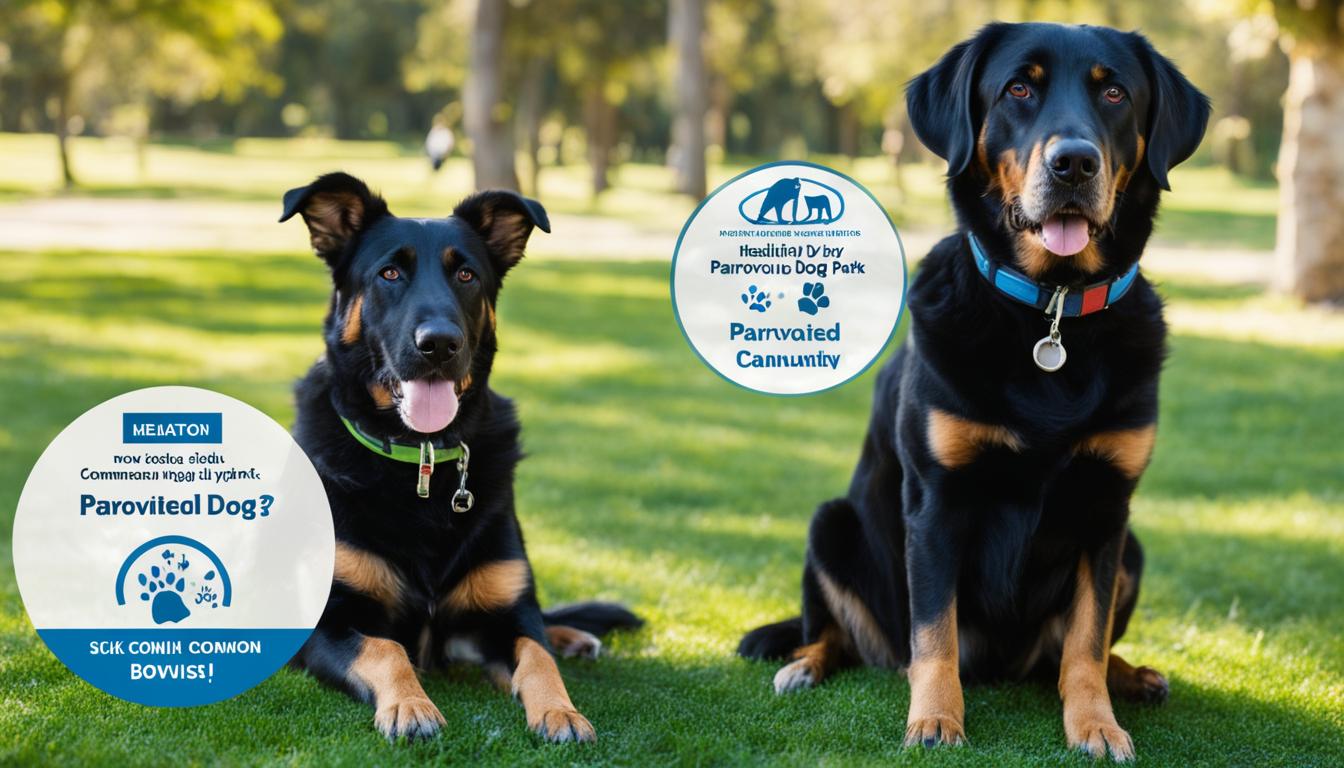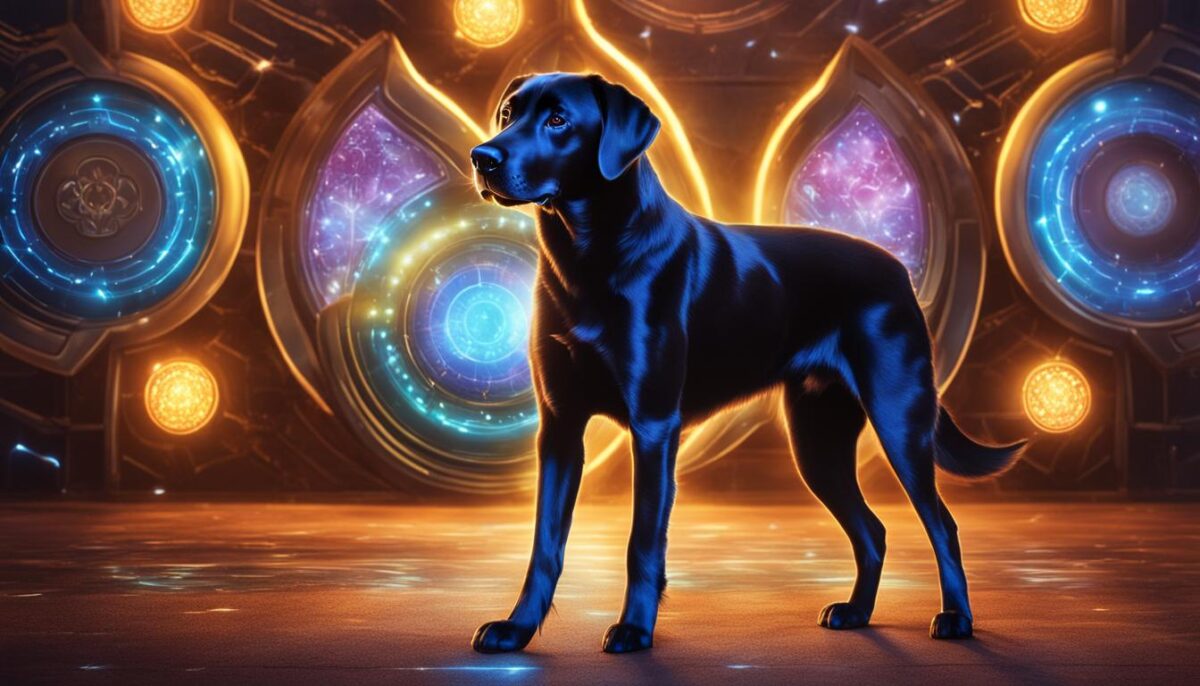Hey there, pet lovers! Have you ever wondered if your furry friend can get sick with canine parvovirus more than just once? It might be something you worry about. Well, it’s pretty rare, but yes, dogs can face parvovirus recurrence. You see, just like people getting different colds, there are different kinds of this nasty bug for dogs. So, taking great care of your dog’s health and making sure they get their shots can help a lot. This article is here to guide you through everything you need to know about keeping your buddy safe and helping their body be ready to fight off parvo. Let’s get into it and learn how to take the best pet care steps to keep that tail wagging!
Key Takeaways
- It’s not common, but dogs can get canine parvovirus more than once.
- Protect your dog with regular shots to help their immunity to parvo.
- Keeping up with your dog’s pet care is super important to stop sickness.
- Different types of the parvo bug mean you’ve got to stay sharp on your dog’s health.
- Being a great pet owner means learning all you can to keep your four-legged friend happy and healthy.
Understanding Canine Parvovirus and Secondary Infection Risks
Has your puppy been feeling sick, maybe with a tummy ache and not eating well? It could be something called canine parvovirus, which is not fun for your furry friend. This virus is like a really bad stomach bug that can make dogs, especially puppies, very sick. But once they get better, they usually can’t get sick from the same exact bug again. That’s good news, right?
However, this tricky virus can change, creating new types that can make dogs sick all over again, kind of like how sometimes you need a new flu shot. These new types are called CPV-2 strains, and there are a few like CPV-2a, CPV-2b, and CPV-2c. Even if a dog has been sick with parvovirus once, these new strains might not care and could make them sick again. This is what we call a secondary parvo infection, which is when a dog gets the parvovirus more than once.
To help keep your dog happy and healthy, vets have special shots that can protect against these mean strains of the virus. Just like when you get your vaccines, these shots can help make sure puppies don’t get this stomach bug, or at least not as badly.
Let’s take a quick look at the differences between the CPV-2 strains to better understand what we’re up against:
| Strain Name | When It Showed Up | What Makes It Special |
|---|---|---|
| CPV-2a | 1979 | First big change from the original virus |
| CPV-2b | 1984 | Has a few tweaks from CPV-2a |
| CPV-2c | 2000s | Newest kid on the block, but not less troublesome |
Remember, the best way to keep your dog from getting this not-so-fun stomach bug is to visit the vet for regular checkups and get those important protection shots! With the right care, you and your furry buddy can have lots of fun days ahead!
Comparing Parvo in Dogs to the Human Flu – Strain Variability
Just like you might catch a cold or the flu and then get sick again later, dogs can get sick with different versions of the same bug. This happens because the germs can change a little bit each time, just like the flu does for us. When we talk about dogs, we’re looking at something called parvo strains, which means different kinds of the parvo virus. If a dog gets better from one kind, there’s no promise it won’t get sick from another kind later on.
The Mutating Nature of Viruses
Viruses can be pretty tricky; they change over time. These virus mutations can make a new virus that looks different on the outside, so the dog’s body might not remember it. Think of it as if the virus puts on a disguise, and now the dog’s body can’t tell it’s the same bad guy it fought off before. That’s why, even though your dog has been sick with parvo once, it can get sick with it again if the virus changes its look.
Why a Past Infection Might Not Guarantee Future Immunity
Now, this is a lot like the flu analogy we use for people. Getting the flu last year doesn’t mean you won’t get it this year, right? It’s because the flu virus can come in many different shapes and kinds, just like the parvo virus can for dogs. Even though dogs are pretty tough and can fight off viruses, these new, changed viruses can sometimes trick them. So when we talk about canine and human viruses, we see they both can be real sneaky changing their game.
In the end, the most important thing to remember is to take care of your dog by going to the vet regularly and keeping their shots up to date. This helps their body be ready to fight off those sneaky viruses that keep trying to change their look.
Factors That Influence a Dog’s Immunity Post-Parvo
Hey there! If you’re a dog lover, knowing about your furry friend’s health is super important. Let’s chat about what helps dogs stay strong after they beat a yucky sickness called parvovirus.
Age and Immune System Maturity
Just like people, a dog’s age can affect their immunity. Young pups might not stay immune for their whole life even after beating parvo. Older dogs, with their more mature immune systems, might have a better chance at lasting immunity.
Vaccination History and Its Effect
Vaccines are like tiny training drills for your dog’s body, teaching it how to fight off the parvovirus. Vaccines are really amazing at helping dogs build a defense against getting sick again. They usually work super well, but sometimes they might not cover every type of this clever virus.
Health Complications from Initial Parvovirus Infection
Some dogs might have a tougher time if the first round of parvo made them really sick. This can make their bodies need to work harder to stay strong against getting sick again. It’s kind of like if you had a really bad cold—it might take a while before you feel like running around the playground again, right?
| Factor | Impact on Dog Immunity |
|---|---|
| Age of Dog | Younger dogs may not maintain immunity long-term |
| Immune System Maturity | Better in older dogs, can mean stronger defense |
| Vaccine Effectiveness | Usually high, but might miss some virus types |
| Health After Recovery | Weaker if the dog was very sick, but can rebuild over time |
Remember, you play a big part in helping your dog stay healthy. Keeping up with their vaccines and check-ups is the best way to keep them wagging their tails!
What Science Says: Can a Dog Get Parvovirus Twice?
When we talk about scientific research on pets, it can sound really fancy, but it’s important for keeping our furry friends safe. So, let’s get into what scientists have figured out about canine parvo recurrence. First, you should know that parvo in dogs is a tough virus, and it likes to change a bit, which is called mutating. This means that even if a dog gets sick with parvo once and gets better, it’s possible, but rare, for them to get sick again with a different strain, or type, of the virus.
Studies in canine health also show that some dogs, depending on their breed, might have a harder time dealing with parvo. But, don’t worry too much—getting sick again with parvo isn’t something that happens a lot.
| Aspect of Parvo | Detail |
|---|---|
| Mutation | Viruses can change and create new strains, just like the flu does in people. |
| Immunity post-recovery | Dogs who recover usually fight off that specific parvo strain if they meet it again. |
| Dog breeds | Some breeds might be more likely to get parvo than others. |
So, if you’re taking care of your dog the best you can, that’s a big step to help them stay healthy. Remember, the information here is from researchers who work super hard to understand more about doggy diseases and how to keep dogs from getting sick more than once. But, nothing’s for sure in science, and that’s why we keep on researching!
Preventative Measures Against Canine Parvovirus Re-Infection
Keeping your furry friend safe from parvo is super important! Let’s talk about preventing parvo and how to make sure your dog stays healthy. First things first, make sure they get their shots. Vaccine protocols are like a shield that helps protect dogs from getting sick.
It’s also smart to keep things clean. Pet hygiene isn’t just about baths and brushing; it’s about cleaning up their space and washing their stuff, too. This can stop germs from spreading.
- Regular vet visits keep you in the know.
- Testing with titer tests tells us if pups need more shots.
- Avoid parvo hotspots like parks during an outbreak.
Staying away from other dogs during outbreaks is a good move as well. When lots of dogs are together, germs can spread quicker. So, if you hear about a sickness going around, it might be best to play at home instead.
Remember, these steps keep your pooch and other dogs safe. So let’s stick to them and help our dog friends be happy and healthy!
Collaborative Care: Your Role and the Vet’s Role in Prevention
When you and your veterinarian work together, you can make a big difference in keeping parvo away from your furry friend. Think of it like a superhero team where everyone has an important job to do!
Importance of Regular Veterinary Checkups
Seeing the veterinarian often is like having a safety net for your dog’s health. It’s when you can learn about parvo prevention strategy and make sure your dog’s shots are up to date! Be sure to ask lots of questions so you know what to do to keep your dog super safe.
Understanding Titer Tests and Booster Shots
There are special tests called titer testing that tell you how well your dog can fight off parvo. It’s kind of like a secret code to see if they need another booster vaccination. The vet can help you figure out what the test means and if your dog needs another shot to stay tough against parvo.
Identifying and Avoiding Parvo Hotspots
Sometimes there are places where parvo likes to hang out, kind of like a villain’s hideout. You and your vet can chat about where these parvo hotspots might be, especially if parvo has been showing up more often. Knowing where to walk and play will keep your dog happy and away from trouble!
Conclusion
Understanding that parvovirus in dogs can happen more than once is scary, but it’s pretty rare. Dogs, like us, can fight off germs better after they get sick once. Your job as a pet owner is to make sure your furry friend stays as healthy as possible. This means shots from the vet, keeping clean, and seeing the vet often. Just like we wear helmets when we ride bikes, we do this to keep our pups safe.
Staying on top of your pup’s pet health care is super important. It keeps them strong against illnesses like parvo. Think about it like eating an apple a day or brushing your teeth, but for your dog. It’s all about preventing sickness before it can even start.
Finally, remember that keeping your best buddy safe from getting sick again means you’ve got to be smart and stay informed. So if you’re doing all the right things, like cleaning up, getting those important vet visits in, and following up with your vaccinations, you’re building a strong wall of immune protection for your pooch. And that’s what’s going to help stop disease recurrence and keep your pup’s tail wagging!
FAQ
Can a dog get Parvovirus twice?
Yes, while it’s uncommon, dogs can contract Parvovirus more than once. Recovery from one strain of canine Parvovirus does not guarantee immunity against all other strains, especially if the virus mutates.
What are the similarities between canine Parvovirus and the human flu?
Both canine Parvovirus and the human flu are able to mutate, resulting in different strains of the viruses. Consequently, just like humans can get the flu more than once, dogs can also get Parvovirus more than once.
How does a past Parvo infection in a dog influence immunity against future strains?
A past infection typically results in immunity against that particular strain of Parvo. However, due to virus mutations, new strains can still infect a dog even if they have survived Parvo before.
Does a dog’s age affect its immunity to Parvovirus?
Yes, a dog’s age can influence its immune system’s maturity and response, impacting the duration and strength of immunity against Parvovirus.
Can all breeds of dogs get Parvovirus?
Yes, all breeds can get Parvovirus. However, scientific research suggests that certain breeds may be more susceptible to the virus than others.
What role does a dog’s vaccination history play in their immunity to Parvo?
Vaccination history is critical in building immunity against Parvovirus. Regular vaccinations are formulated to protect against the most common and current strains and are a key factor in preventing Parvo.
How does one prevent canine Parvovirus re-infection?
Preventing re-infection involves regular vet visits for updated vaccines, practicing good hygiene, maintaining a clean environment for your dog, titer testing to check immunity levels, and avoiding areas with high dog populations during Parvo outbreaks.
What are titer tests and why are they important?
Titer tests measure the amount of antibodies in a dog’s bloodstream, which helps determine their level of immunity against Parvovirus and informs decisions about additional booster vaccinations.
What are parvo hotspots and how can they be avoided?
Parvo hotspots are environments where the disease is commonly transmitted, such as dog parks, kennels, and shelters. Avoiding these areas, especially during outbreaks, can reduce the risk of your dog contracting Parvovirus.
What is the vet’s role in preventing Parvovirus?
Veterinarians are crucial in preventing Parvovirus. They provide vaccinations, advice on Parvo outbreaks, conduct health checkups, perform titer tests, and help in developing a comprehensive Parvo prevention strategy.


